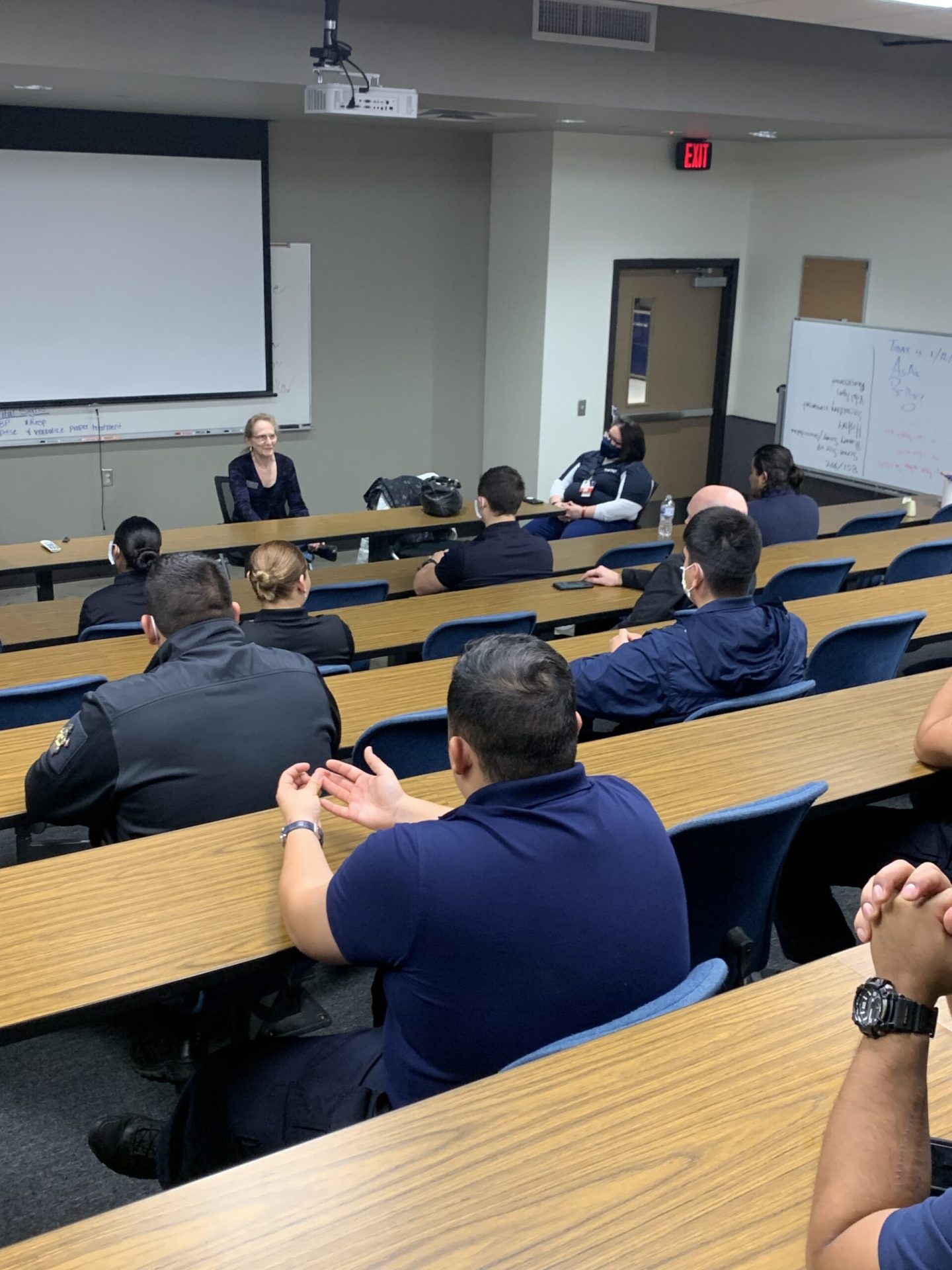
HARLINGEN — Dr. Julia Nathan, Texas State Technical College’s Emergency Medical Services medical director, welcomed the spring 2022 cohort to the program recently in Harlingen.
Nathan discussed many topics, including the program’s preliminary expectations, professionalism, instructor availability, learning from errors in medical knowledge, and the psychological responses involved with this career pathway.
“The key to having a long-term career is resilience,” she said. “You need to make sure you get some rest. Also, you need to learn how to work in terms of confronting bad situations that may happen. In order to do what we are able to do for patients and their health, you will need to learn how to process the stress to be successful and perform at your peak.”
Nathan, a former California resident who now resides in Harlingen, trained at the Zuckerberg San Francisco General Hospital and Trauma Center in California for four years. She sought to continue her career elsewhere and relocated to the Rio Grande Valley, working at Valley Baptist Medical Center in Harlingen for 23 years. Then she transitioned to the role of an emergency room physician at Harlingen Medical Center in 2015.
Jean-ra Caballero, a TSTC Emergency Medical Services student in his first semester, said that his mother motivated him to enroll in the program.
“The job is a first responder and it is important because they transfer patients from one destination to another,” he said. “Dr. Nathan’s message made me realize how an EMT contributes to a patient’s health.”
Allison Araiza, another TSTC Emergency Medical Services student, first tried TSTC’s Nursing program before she learned about this program.
“I researched the EMS program and I realized how it would challenge me,” she said. “That’s what I want in my career. I also enjoy how the program adapts well to my schedule since I am a mother.”
Salvador Acevedo, TSTC’s Emergency Medical Services program director, mentioned that this spring cohort is their largest class yet with more than 30 students registered.
“It will be an interesting dynamic trying to move them across and get all the skills that are involved in the paramedic curriculum,” he said. “One of the biggest requirements is to make students aware of who our medical director is. A big part of the training is to get clearance from her (Nathan) in order to get certified. Once they are complete with the didactic portion of the class, Dr. Nathan then evaluates the skills and knowledge of the paramedic before they are deemed to be certified.”
Students are currently learning about safety in the program.
Acevedo noted that the EMS program plans to bring a different dynamic to instruction with new innovations. The intent is to make lectures straightforward and user-friendly so students feel comfortable.
A new addition will be an immersive classroom simulation. This will be incorporated into scenarios to enhance the experience and tap into a student’s senses.
According to onetonline.org, the need for paramedics and emergency medical technicians in Texas is expected to grow 11% by 2028.
TSTC offers an Associate of Applied Science degree in Paramedic, as well as several certificates of completion.
For more information about TSTC, visit tstc.edu.



